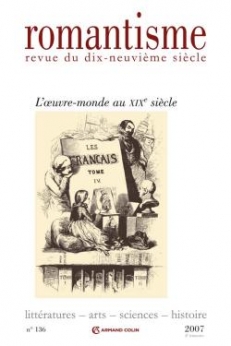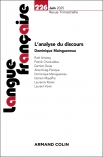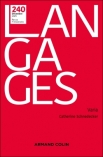
Romantisme n° 136 (2/2007)
Pour acheter ce numéro, contactez-nous
Recevez les numéros de l'année en cours et accédez à l'intégralité des articles en ligne.
Huit ans après la publication d’Excès du roman, Tiphaine Samoyault revient sur la catégorie de roman-monde telle qu’elle l’avait élaborée alors pour dire dans quel sens elle pourrait être amendée ou étendue. L’expression y nommait l’effort de la littérature pour dire et/ou représenter le monde non dans sa totalité mais comme une totalité. Trois propositions invitent ainsi à la reprise et engagent un ou plusieurs interlocuteurs : le monde est plein (discussion avec Roland Barthes), le monde est possible (entretien avec Thomas Pavel et Nelson Goodman), le monde est mémoire (dialogue avec Philippe Forest). La réflexion sur l’excès du roman et la catégorie d’oeuvre-monde se heurte ainsi à trois bornes ou difficultés : le témoignage, l’impossible, l’indécidable.
Eight years after the publication of Excès du roman (Excess of the Novel), Tiphaine Samoyault resumes the notion of « roman-monde » (novel as a world) as she defined it to say in what way it could be transformed or developed. In this book, the category named the effort of literature to say and/or to represent the world not in its whole but as a whole. Three proposals open the dialogue: the world is full (discussion with Roland Barthes), the world is a possible world (dialogue with Thomas Pavel and Nelson Goodman), the world is a memory (dialogue with Philippe Forest). The thought of the excess of the novel and the category of oeuvre-monde confronts itself to three problems or limits: the testimony, the impossible, the undecidability.

